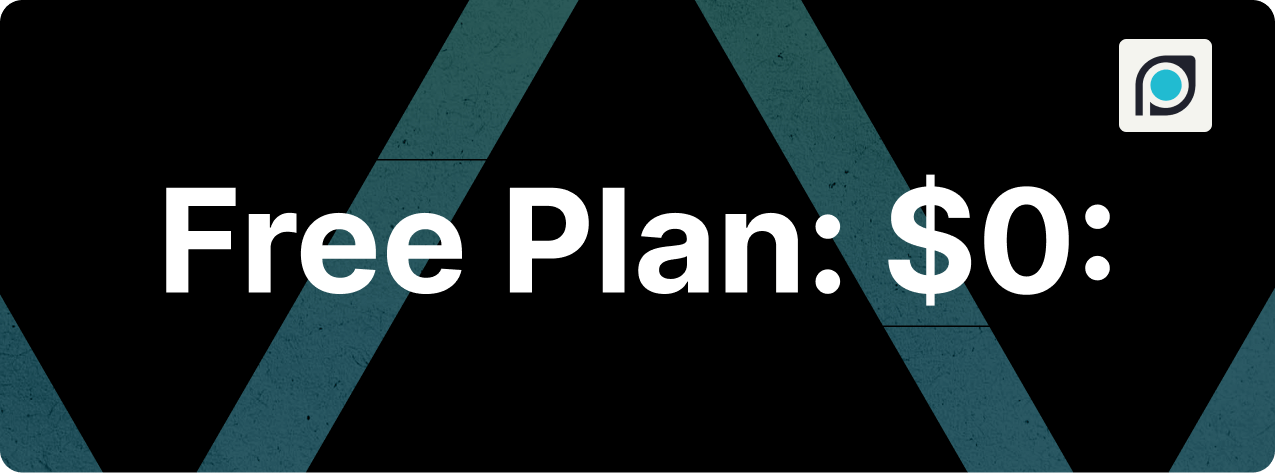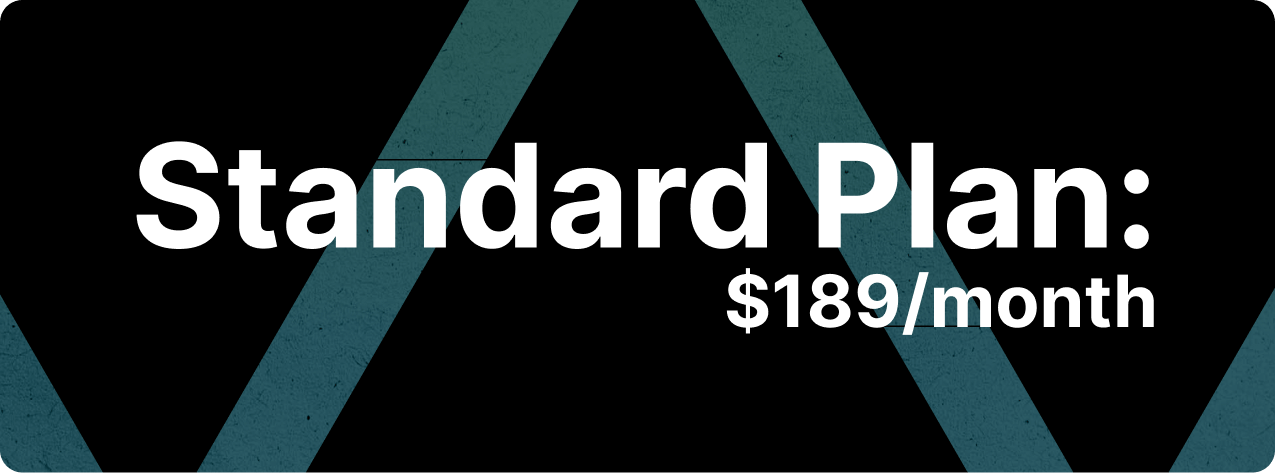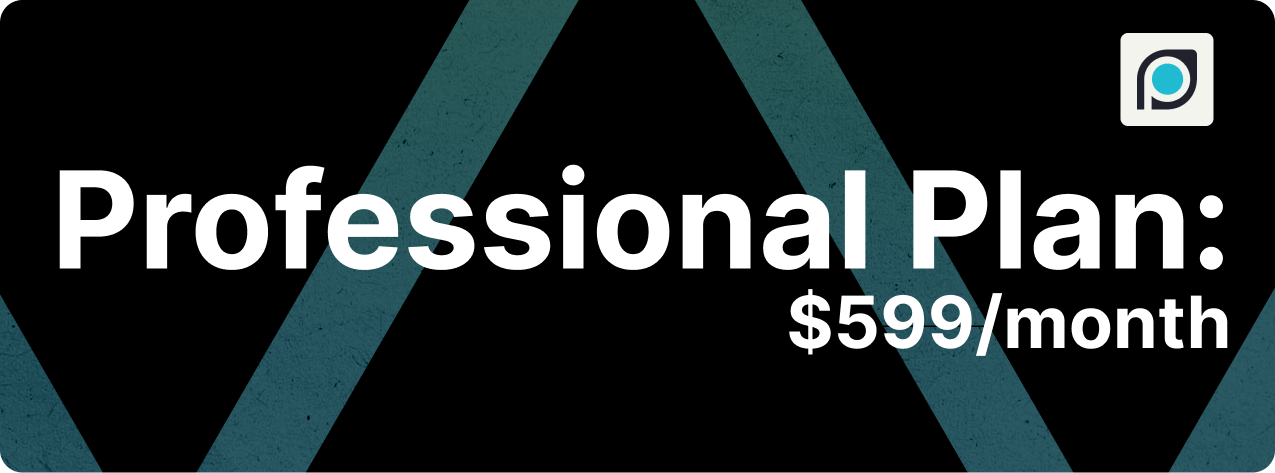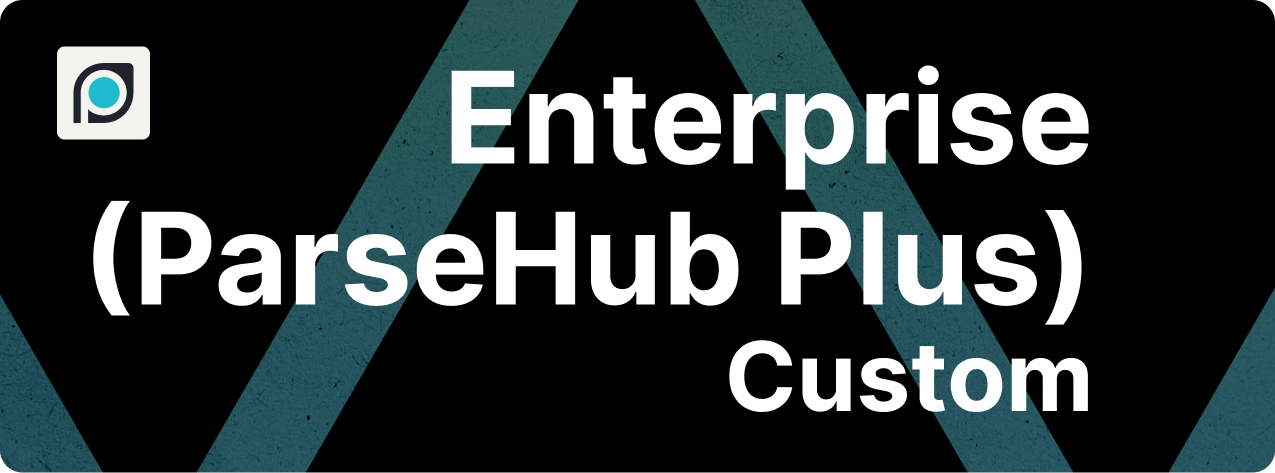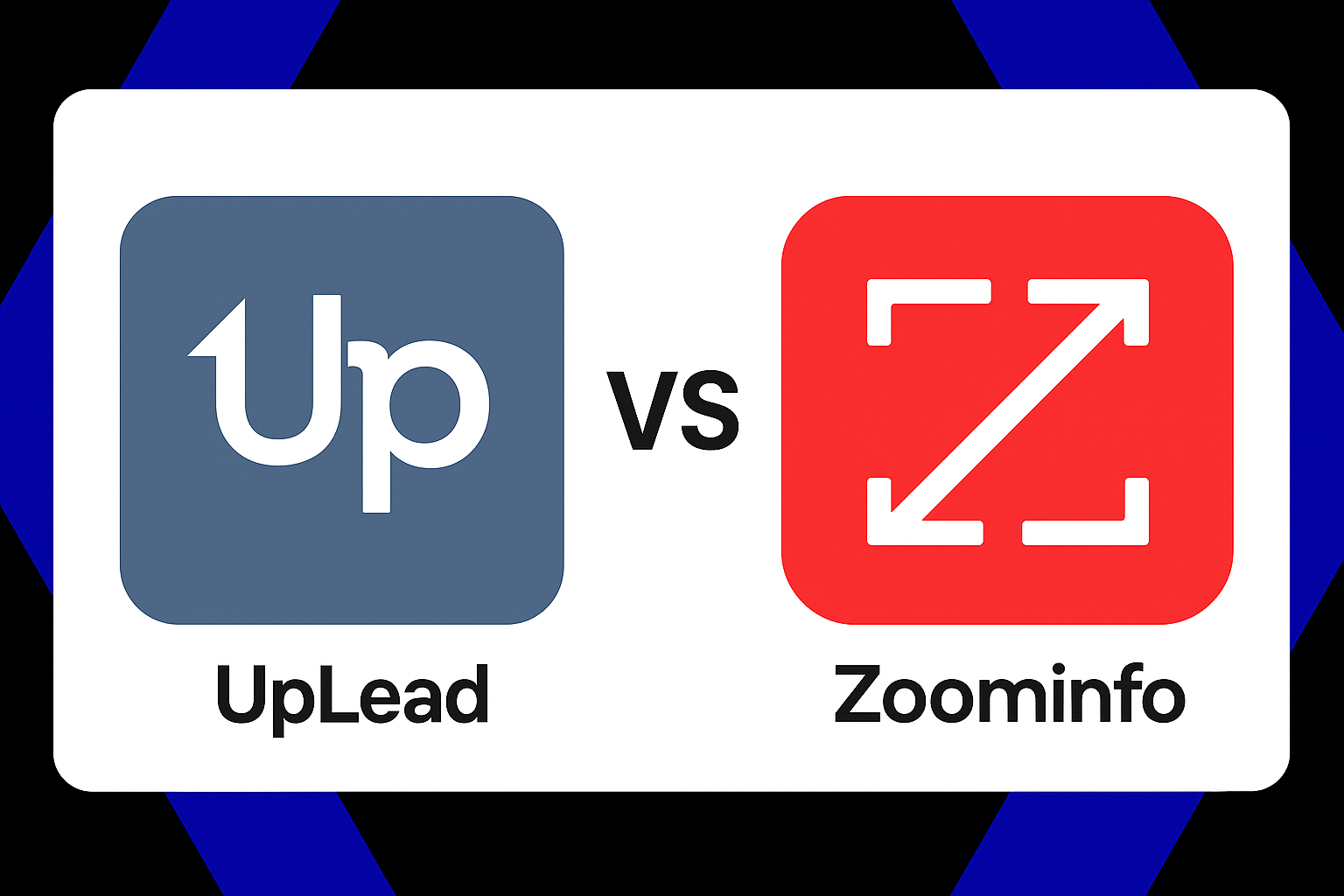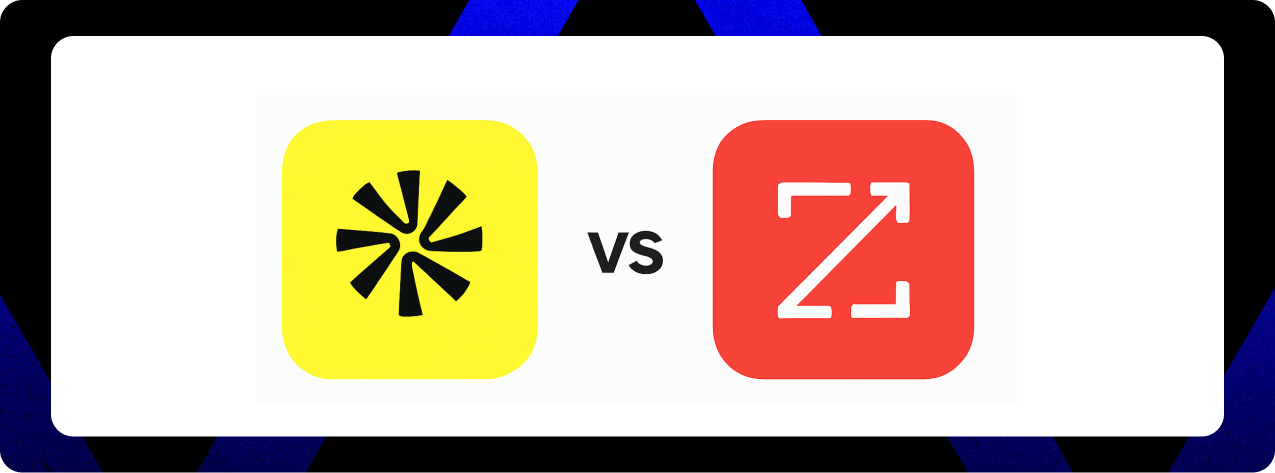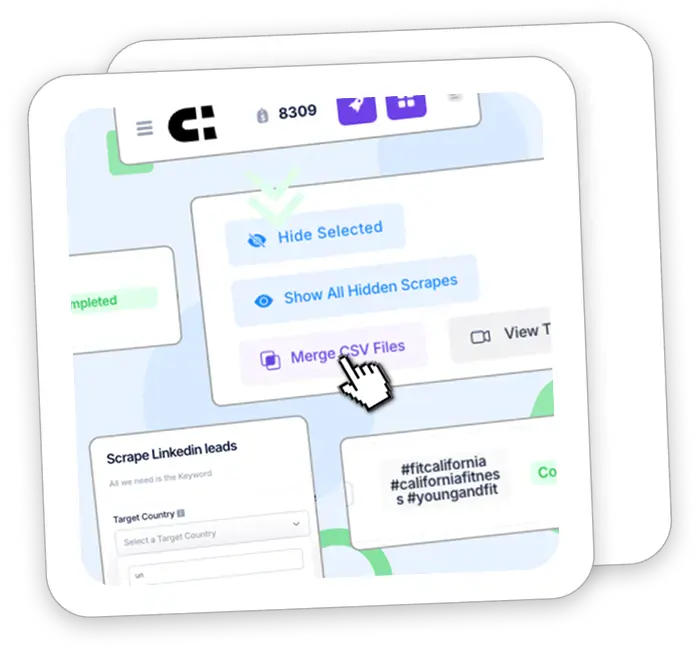ParseHub Pricing Guide 2025: Is The Free Plan Worth It?
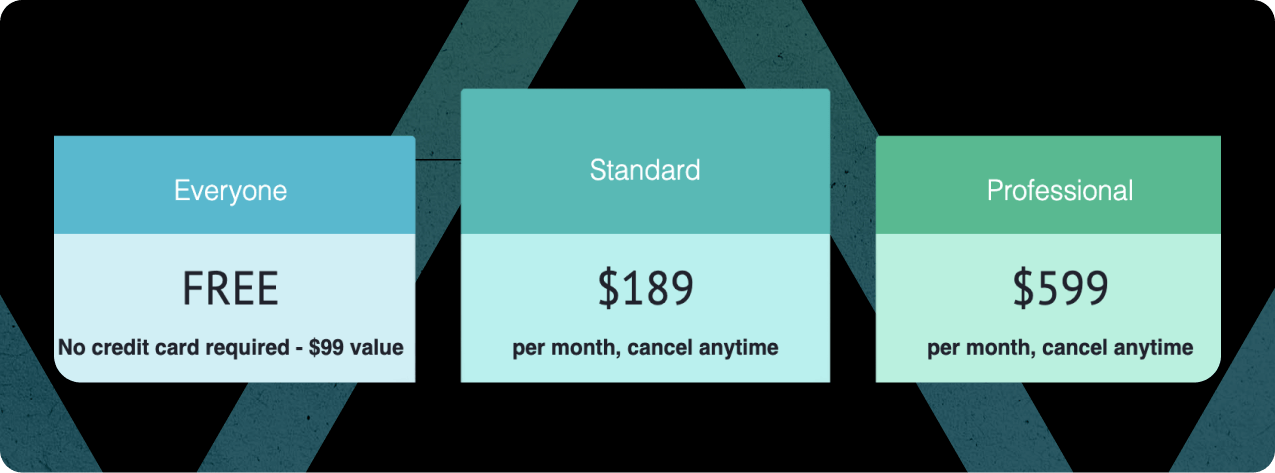
If you’ve ever tried scraping data manually, you know how quickly it turns into a time-consuming headache. Tools like ParseHub promise to simplify web scraping with a visual, no-code interface, but their 2025 pricing model is anything but simple. Between project limits, page caps, and speed restrictions, figuring out which plan actually fits your needs can be confusing.
This guide cuts through the noise. You’ll get a transparent breakdown of ParseHub’s free and paid plans, what you actually get at each tier, and where the real limitations kick in. Whether you’re a freelancer, a startup, or a scaling business, you’ll see exactly when ParseHub makes sense, and when it might not.
If you’re tired of hitting scraping limits, dealing with confusing page allowances, or managing concurrency slots, there are simpler solutions. For example, IGLeads’ email scraper offers a no-code, unlimited scraping alternative built specifically for lead generation. Unlike ParseHub, it doesn’t charge for pages or throttle your usage.
At the end of this guide, we’ll also show how IGLeads compares to ParseHub, and why more teams are switching to specialized tools built for prospecting without the scraping headaches.
ParseHub Pricing Explained: What Each Plan Includes in 2025
ParseHub structures its pricing around three core factors: page limits per run, project slots, and scraping speed. Instead of usage-based credits like some tools, your costs depend on how much data you extract in a single run and how many projects you manage concurrently.
Here’s the real breakdown of what you’ll pay, and what that means for your scraping workflow.
| Plan | Price | Page Limit | Project Slots | Concurrent Runs | Speed | Support |
|---|---|---|---|---|---|---|
| Free | $0 | 200 pages per run | 5 (public only) | 1 | Standard | Community only |
| Standard | $189/month | 10,000 pages per run | 20 (private) | 5 | Faster | Email support |
| Professional | $599/month | Unlimited per run | 40 (private) | 10 | Fastest | Priority + phone |
| Enterprise | Custom pricing | Unlimited | Unlimited | Unlimited | Fastest + custom | Dedicated manager |
Free Plan: $0: Useful for testing, but hits limits fast ⭐⭐
ParseHub’s free plan is one of the better free tiers in scraping. You get access to the full visual scraping engine, no feature locks, but the 200-page limit per run means you’ll bump into the ceiling quickly on anything beyond simple directories or research projects.
Good for: Testing the platform, hobbyists, tiny scraping tasks.
Watch out for: The moment you scrape anything substantial (like a medium-sized eCommerce site), the page limit becomes a blocker fast.
Standard Plan: $189/month: Entry to real scraping workflows ⭐⭐⭐
This is ParseHub’s first paid tier, and a massive jump from free. You get 10,000 pages per run, plus 20 project slots and 5 concurrent scrapes. Speed also improves noticeably. For small agencies, marketing teams, or eCommerce operations monitoring multiple sites, this handles routine scraping without major issues.
Good for: Agencies monitoring competitors, product price tracking, lead generation for SMBs.
Watch out for: While the page limit is decent, scraping very large websites still requires chunking jobs. Also, the jump from $0 to $189/month can feel steep if your needs are inconsistent.
Professional Plan: $599/month: For serious scraping operations ⭐⭐⭐⭐
This tier removes most volume concerns with unlimited pages per run, 40 private projects, and 10 concurrent scrapers. It’s designed for teams scraping at scale, daily data refreshes, dynamic websites, or large, multi-client operations. You also unlock API access, faster speeds, and priority phone support.
Good for: Agencies, enterprise scraping, startups powering databases or research.
The downside: The pricing leap from Standard ($189) to Professional ($599) feels steep if you only need, say, 15,000–20,000 pages — there’s no middle ground.
Enterprise (ParseHub Plus): Custom: Managed scraping at scale ⭐⭐⭐⭐
This plan offers unlimited everything: This plan removes all usage restrictions (unlimited projects, pages, and concurrent scrapes) with dedicated account management, enhanced security, and SLA guarantees. It includes a dedicated account manager, custom API limits, enhanced security, and SLAs. ParseHub essentially acts as your outsourced scraping infrastructure.
Good for: Enterprises with massive data needs, large research teams, or anyone requiring guaranteed uptime, support, and scale.
The tradeoff: Pricing moves into premium territory — and for many teams, alternative tools or custom scraping setups become more cost-effective at this level.
Key Pricing Patterns
ParseHub’s pricing revolves around a few strict variables: Billing tied to scraping volume and the number of concurrent tasks. Unlike some SaaS tools, ParseHub doesn’t charge per user seat or use credits. However, there are no true overage fees, if you hit limits, you have to upgrade.
This structure works well for predictable workflows but becomes frustrating for businesses with seasonal, burst-heavy, or inconsistent scraping needs.
What’s consistent across all plans:
- Full access to the visual scraping tool — even on the free plan
- Cloud-based scraping (no local setup needed)
- Data exports in JSON or CSV
- API access (Pro plan and higher)
- Cross-platform (Mac, Windows, Linux)
Bottom Line:
ParseHub’s pricing works if you have predictable, large-scale scraping needs. But for users who value flexible, on-demand scraping without hitting page caps or concurrency limits, this model can create friction.
For teams focused specifically on lead generation, scraping platforms like LinkedIn, Google Maps, Instagram, or YouTube, ParseHub may be overkill. In those cases, purpose-built tools like IGLeads’ email scraper offer unlimited scraping without worrying about page limits, project slots, or throttling.
Who benefits most from ParseHub’s approach?
ParseHub works best for specific types of teams rather than being a universal solution. After analyzing how different organizations actually use the platform, we’ve identified three distinct groups that get real value from ParseHub’s capabilities in 2025.
Bootstrapped startups building prospect lists
Cash-strapped startups find ParseHub’s free tier particularly valuable for early-stage lead generation. The 200-page limit might sound restrictive, but it’s enough to scrape contact information from business directories and build targeted prospect lists. The no-code visual interface means founders can extract lead data without hiring developers.
Startup teams typically use ParseHub for:
- Scraping industry directories for contact information
- Pulling leads from social media platforms
- Building cold email prospect lists
- Monitoring competitor marketing activities
The real power comes from integrating ParseHub with cold email tools like Instantly.ai to create automated lead generation workflows. This combination lets resource-constrained teams compete with larger organizations in outreach volume and targeting.
For early-stage companies testing market fit, ParseHub’s free tier provides enough data extraction capability to validate audience segments without burning through limited budgets.
Do you feel a need for more details about this tool? Check out our ParseHub review.
Enterprise teams handling complex data workflows
Large organizations with substantial data requirements find value in ParseHub Plus’s managed services. Enterprise teams need the ability to extract and monitor real-time data at scale without overwhelming target websites.
We’ve worked with enterprise clients who rely on ParseHub for market intelligence, tracking pricing fluctuations, competitor movements, and industry trends. The managed service includes custom validation scripts that ensure data accuracy—critical for enterprise decision-making.
The enterprise offering addresses a key pain point: “By having a managed web scraping team for your sales team, your sales reps can focus on making sales, instead of spending their time and effort on lead generation”.
Enterprise teams appreciate the SLA guarantees and dedicated account management that come with ParseHub Plus. For organizations where data reliability affects revenue, these support enhancements justify the premium pricing.
Freelancers and agencies monetizing scraping expertise
Technical freelancers have found opportunities in the growing demand for web scraping services. ParseHub enables consultants to offer everything from basic directory scraping to complex data extraction projects without building scraping infrastructure from scratch.
Freelancers typically charge per website or project, with rates varying based on complexity factors like page volume, update frequency, and data formatting requirements.
Developers use ParseHub’s output to power various applications: “Use data in JSON or CSV format downloaded from the ParseHub app or API to get the data you need to design for the modern web”. This flexibility enables everything from product comparison tools to custom market intelligence dashboards.
The Professional tier’s API access becomes particularly valuable for freelancers building ongoing client relationships. Instead of delivering one-time data exports, they can create automated workflows that provide continuous value to clients.
Bottom line: ParseHub fits specific niches well—bootstrapped startups, enterprise teams with complex needs, and technical service providers. For most mid-market businesses, the gap between the free tier and paid plans often makes alternatives more attractive.
Where ParseHub’s Pricing Delivers (and Where It Falls Short)
ParseHub’s pricing model delivers some genuine wins alongside frustrating limitations. After testing their platform across different use cases, the value equation isn’t straightforward.
✅ What ParseHub Does Well
- Free tier that actually works ⭐⭐⭐⭐
ParseHub’s no-cost plan offers real functionality instead of the typical freemium tease. You get their full visual scraper without feature restrictions, just volume limits. This lets you test legitimate projects and build small-scale workflows without paying upfront.
- Team-friendly collaboration ⭐⭐⭐⭐⭐
No per-user fees means your entire team can collaborate on projects without additional costs. This team-first approach stands out in a SaaS landscape where most tools charge for every seat.
- Clear project organization ⭐⭐⭐⭐
The project slot system (5 free, 20 Standard, 40 Professional) gives you defined boundaries for organizing workflows. Teams can plan data extraction projects more effectively with these clear limits.
- API automation value ⭐⭐⭐⭐
Professional tier API access eliminates manual export workflows. For teams feeding scraped data into existing systems, this automation pays for itself quickly.
❌ Where ParseHub pricing falls apart
- Unpredictable overage costs ⭐⭐
The pay-per-additional-page model creates budget uncertainty. When projects exceed page allowances, costs spiral without warning. Teams with variable data needs find this especially problematic.
- Complex pricing variables ⭐⭐
ParseHub bases costs on projects, pages per run, concurrency, and speed. Estimating actual needs becomes challenging, particularly for growing teams whose requirements shift monthly.
- Dramatic scaling gaps ⭐⭐
The jump from 200 pages (free) to 10,000 pages (Standard) leaves businesses needing mid-range capacity with no good option. Many teams quickly outgrow Standard but find Professional tier costs excessive.
- Speed throttling on lower tiers ⭐⭐
Standard extraction speeds on free plans feel painfully slow for time-sensitive projects. You’re forced into higher-priced tiers for decent performance, even if you don’t need the extra page capacity.
Bottom line: ParseHub works well for teams with predictable, consistent scraping needs. For businesses with variable data requirements or tight budgets, the pricing complexity and scaling gaps create real friction.
The platform’s strength lies in its no-nonsense free tier and team-friendly approach. Its weakness shows up when you need flexibility or face unexpected volume spikes.
Real user feedback on ParseHub pricing
User reviews tell a different story than ParseHub’s marketing pages. With a 4.5/5 overall rating and 88% positive reviews, the platform clearly works for many teams, but digging deeper reveals where the pricing model creates real friction.
What users actually appreciate
The free plan gets genuine praise from technical users who appreciate getting substantial functionality without opening their wallets. Asif K., a Chief Technology Officer, notes: “Speed on Free Plan is perfect. Features/Tools for making web extraction project is amazing”.
This sentiment appears consistently across reviews. Users highlight the ability to test ParseHub’s full extraction capabilities before committing to paid plans. Jason W., a CEO, appreciated the straightforward onboarding: “Downloaded the app and was up and running in a few minutes”.
Some users position ParseHub as a significant value compared to specialized services. One reviewer claimed “ParseHub will give you for free what many ‘Lead Scraping’ Services charge you USD 100,000+ for”. For teams with modest scraping needs, this represents genuine cost savings.
The platform’s multi-platform support also gets called out as a differentiator, especially for teams that have struggled with competitors that don’t work consistently across operating systems.
“I am loving the PraseHub web scraper. I’ve had so much success with it, and it’s just so easy to use. I’m a freelancer who does a lot of scraping for clients and this makes my life so much easier!” – Saransh V., Trainee Analyst
Where the pricing model breaks down
The praise stops when users hit ParseHub’s pricing walls. The most frequent complaint centers on the dramatic jump between tiers. One reviewer put it bluntly: “The jump from free to paid is steep. At USD 189.00/month for the Standard plan, ParseHub is a significant investment—especially for individuals or small teams”.
The 200-page limit on the free plan creates particular frustration. Multiple users wish “it was at least 500 or 1,000 pages” to make the free tier genuinely useful for real projects. Teams often find themselves hitting this ceiling during their first serious scraping attempt.
Technical complexity compounds the pricing concerns. A Senior BI Developer noted: “It can be difficult to understand why extraction fails or how the project needs to be changed to make it work”. When you’re paying premium prices, debugging failed scrapes becomes a costly time sink.
Some users report complete dissatisfaction with the value equation. A Managing Director called ParseHub “THE biggest waste of time experienced in a while”. Another G2 reviewer dismissed the “Free Tier is almost useless”, directly contradicting the positive experiences other users report.
“I was not able to publish the compete scarped output. The output is very limited”. –
Preet Karan Singh N. – Program Manager
The mixed feedback suggests ParseHub works well for specific use cases but struggles to deliver consistent value across different business needs and technical skill levels.
ParseHub’s value equation: where the pricing breaks down
ParseHub’s pricing in 2025 creates a tricky value calculation. The free plan looks generous until you actually try to use it. The paid tiers offer substantial capability but at price points that leave many teams questioning whether the investment makes sense.
The 200-page limit hits faster than expected on the free plan. Pull product data from a decent-sized e-commerce site, and you’re bumping against this ceiling in your first real project. Many users wish this limit was at least 500-1,000 pages to make the free tier genuinely useful.
Once you exceed free plan limits, you’re facing a $189/month jump to Standard. For individuals or small teams, this represents a significant investment that’s hard to justify unless you have consistent, high-volume scraping needs.
Beyond pricing, ParseHub’s functional limitations create additional friction:
- No auto-pagination support means manually configuring page navigation
- Dynamic website extraction proves challenging for complex sites
- IP rotation requires paid plans
- Data export issues with users reporting “empty file” errors
Teams are switching away from ParseHub
Despite ParseHub’s 4.3/5 G2 rating, teams increasingly seek alternatives. The main drivers include:
- Learning curve frustration – New users typically spend 1-3 hours setting up their first scraper. For teams that need quick data extraction, this time investment becomes a significant barrier.
- Troubleshooting headaches – Error messages provide little guidance, forcing users into time-consuming trial-and-error processes. Some users describe ParseHub as “the biggest waste of time” after struggling with failed extractions.
- Better-priced competition – Competitors like Bright Data, Octoparse, and Apify offer functional alternatives. Options starting from $29/month make ParseHub’s $189 entry point feel excessive for many use cases.
Bottom line: ParseHub works well for technical users with steady, predictable scraping workflows who can justify the learning curve and pricing. For teams that need fast, reliable data extraction without technical complexity, the combination of high costs, setup friction, and limited free functionality makes alternatives more attractive in 2025’s competitive landscape.
If you’re running consistent, high-volume projects and have technical resources to manage the setup, ParseHub can deliver value. If you need quick wins, flexible pricing, or user-friendly workflows, you’ll probably find better fits elsewhere.
ParseHub vs IGLeads: where each tool actually fits
ParseHub and IGLeads solve different problems, which makes direct comparison tricky. ParseHub targets general web scraping across any website. IGLeads focuses specifically on social media and local business data extraction. Your choice depends on what you’re actually trying to scrape and how much complexity you want to manage.
| Feature | 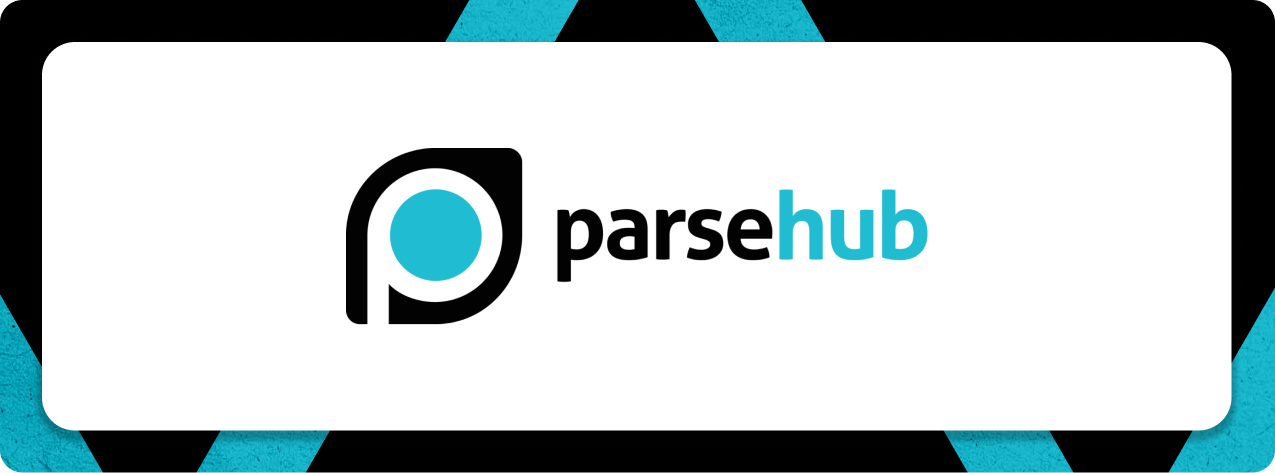 |
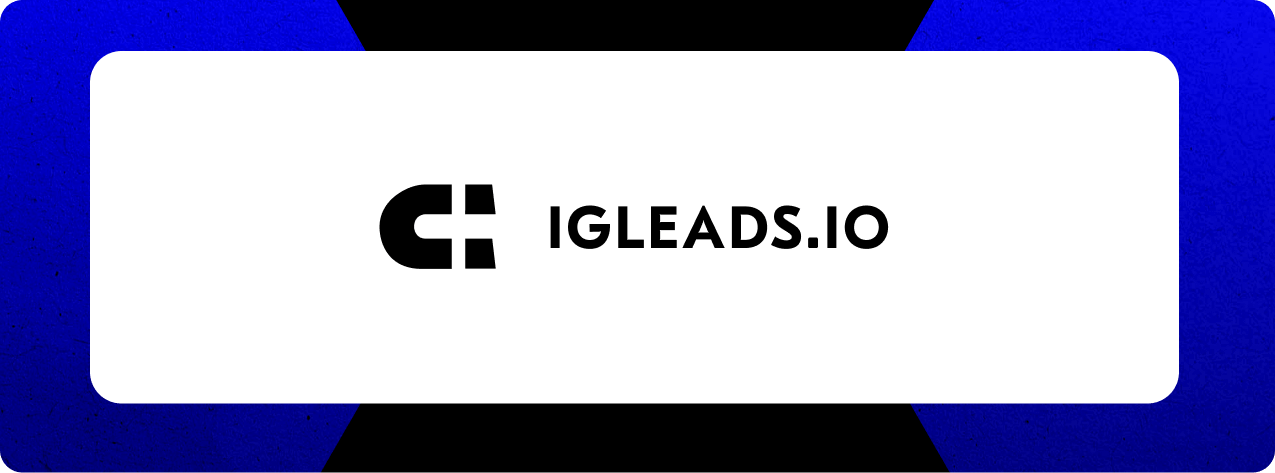 |
|---|---|---|
| Pricing Transparency | ⚠️ Tiered pricing based on pages per run, project slots, and scraping speed | ✅ Flat monthly pricing with no hidden fees or usage limits |
| Credit/Usage Model | ⚠️ Pay-per-run limits, with upgrades required for higher volume or speed | ✅ No credit system: unlimited scraping and exports within your plan |
| Ease of Use | ⚠️ Requires setup of selectors, pagination, and handling dynamic sites | ✅ Fully no-code: cloud-based, instant scrapers with no setup needed |
| Platform Coverage | ⚠️ Any website (requires manual configuration) | ✅ Pre-built scrapers for LinkedIn, Google Maps, Instagram, YouTube, TikTok, and more |
| Phone Numbers & Contact Data | ⚠️ Focus on page content scraping; no built-in contact enrichment | ✅ Phone numbers, emails, and full contact data when available |
| Free Trial or Free Plan | ✅ Free plan with 200 pages per run limit | ✅ Free dashboard access + sample CSV. No credit card needed |
| Contract Commitments | ⚠️ Monthly subscriptions; higher tiers feel locked without a middle option | ✅ Cancel anytime. No contracts, no commitments, no hidden terms |
ParseHub works best for technical teams that need custom extraction workflows from complex websites. Its visual scraper handles dynamic content and JavaScript-heavy sites that simpler tools can’t touch. You get precise control over data collection, but you pay for it with setup time and learning curve.
ParseHub fits these scenarios:
- One-off research projects where you need specific data from unique websites
- Technical teams with dedicated scraping resources
- Businesses with predictable, consistent data needs
- Complex extraction requiring custom logic and validation
If you’re comfortable with web scraping concepts and have time to invest in setup, ParseHub’s free plan delivers genuine value for small projects.
IGLeads takes a different approach. Instead of trying to scrape everything, it focuses on high-value social and local data sources. You get Instagram, LinkedIn, Google Maps, and YouTube scraping with filters built specifically for lead generation workflows.
IGLeads shines for:
- Social media lead generation (Instagram creators, LinkedIn professionals)
- Local business prospecting (Google Maps data)
- Sales teams that need ready-to-use contact data
- Fast list building without technical setup
The pricing models reflect these different approaches:
ParseHub’s pricing becomes problematic once you need scale. The jump from 200 free pages to $189/month creates a massive gap. Plus, the pay-per-additional-page model makes budgeting unpredictable, especially for campaigns with variable volume.
Many sales teams hit ParseHub’s limits precisely when their campaigns start working. You’re either stuck with tiny volumes or facing a significant monthly commitment.
IGLeads addresses these pain points with straightforward pricing and no overage fees. You know exactly what you’re paying each month, whether you scrape 100 contacts or 10,000. The platform is purpose-built for sales teams rather than developers, which eliminates most of the technical friction.
For LinkedIn prospecting and targeted lead generation, IGLeads delivers specialized functionality that ParseHub can’t match. You get built-in filters for job titles, locations, and company types rather than building custom scraping logic.
Bottom line: ParseHub works for technical teams with complex, custom scraping needs. IGLeads fits sales and marketing teams that want reliable social media and local business data without the technical overhead. Most growing teams find IGLeads’ focused approach and predictable pricing easier to scale with.
IGLeads: predictable pricing without the headaches
ParseHub’s pricing complexity has driven many teams to seek simpler alternatives that won’t leave you calculating overage fees or decoding multi-variable pricing structures. We’ve tested dozens of lead generation tools, and IGLeads stands out for teams that want straightforward data extraction without the enterprise overhead.
Clear pricing that actually makes sense
IGLeads keeps pricing transparent with three simple tiers:
- Starter Plan: $49/month (billed annually or $59 month on month) for 10,000 leads
- Business Plan: $79/month (billed annually or $149 month on month) for 50,000 leads
- Unlimited Plan: $239/month (billed annually or $299 month on month) for unlimited scraping
The credit system works exactly like it sounds—one contact extracted equals one credit used. No page allowances to calculate. No speed tiers to decode. No surprise charges when your project pulls more data than expected.
Built for sales teams, not developers
ParseHub targets technical users who need custom extraction workflows. IGLeads focuses exclusively on B2B prospecting:
- Sales-ready data from LinkedIn, Instagram, Google Maps, and YouTube
- Built-in email verification that ParseHub lacks entirely
- Zero coding required to start scraping leads
- 90%+ email accuracy vs ParseHub’s variable data quality
Teams switch to IGLeads specifically to avoid the technical learning curve that ParseHub demands. You’re not building complex scrapers.You’re pulling verified business contacts ready for outreach.
Download a free sample to see exactly the type of data IGLeads delivers.
Budget certainty vs pricing surprises
ParseHub’s model creates budget uncertainty through page limits, speed restrictions, and overage charges. IGLeads eliminates these pain points:
- Fixed monthly lead allocations
- No surprise charges when projects scale
- Credits that roll over between months
- Usage dashboard with clear remaining balance
Sales teams can forecast lead generation costs accurately instead of worrying about unexpected bills during high-volume campaigns.
Bottom line: IGLeads delivers what ParseHub can’t: predictable costs, sales-focused functionality, and simplicity that lets you focus on converting leads instead of managing complex scraping configurations.
Related to Parsehub
- Best ParseHub Alternatives in 2025 (No-Code & Scalable Options)
- ParseHub Review 2025: The Truth About This Web Scraping Tool
Frequently Asked Questions
ParseHub’s free plan allows users to create up to 5 projects, with a limit of 200 pages per run at standard extraction speeds. It’s suitable for beginners and small-scale scraping projects.
ParseHub offers tiered pricing based on factors like project slots, pages per run, extraction speed, and concurrent runs. Plans range from free to custom enterprise solutions, with paid plans starting at $189/month for the Standard tier.
ParseHub can be valuable for startups, enterprise teams, and freelancers who need web scraping capabilities. However, the steep price jump between tiers and potential for overage fees may make it less cost-effective for some users.
While ParseHub offers powerful general web scraping features, alternatives like IGLeads provide more specialized functionality for sales and marketing teams. IGLeads offers simpler pricing, built-in email verification, and a focus on B2B lead generation without requiring coding skills.
Users often cite the significant price increase from the free to paid plans, complex pricing variables, and potential for unexpected overage charges as drawbacks. Some also find the free plan’s 200-page limit too restrictive for meaningful projects.
